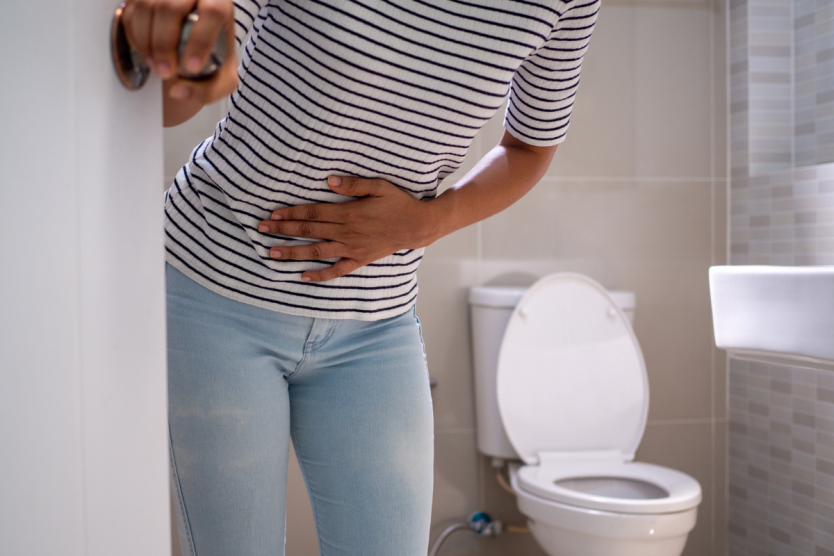We often make jokes about the need to visit the bathroom on a regular basis, but having an overactive bladder is no laughing matter.
The condition known as overactive bladder is more than just an occasional need to run to the bathroom. OAB causes a frequent and sudden urge to urinate that may be difficult to control. If you feel like you need to pass urine many times during the day and night, you may have OAB, which can also create urgency incontinence, the unintentional loss of urine.1
So if you have OAB, what are some steps you can take, such as changes to your diet, that may help alleviate the symptoms? Let’s look at what foods to avoid if you have an overactive bladder.
All About OAB
Dealing with Overactive Bladder
Don’t think overactive bladder is just another part of aging. Although it can happen as you age, it isn’t something you just have to “live with.”
Here are some signs you may have OAB, and you should see a doctor for a diagnosis:1
- You feel a sudden urge to urinate that’s difficult to control—even after you’ve just gone to the bathroom
- You experience unintentional loss of urine immediately after an urgent need to urinate, known as urgency incontinence
- You urinate frequently, usually eight or more times in 24 hours
- You wake up more than two times in the night to urinate
Dealing with OAB can impact your work and social life, as you may feel embarrassed and hesitate to go out, and it can also affect your mental health. But the good news is that you may be able to manage your symptoms with some behavioral strategies, such as dietary changes.1
Here are some ideas.
What Foods To Avoid If You Have An Overactive Bladder
The most common lifestyle modification suggested for bladder issues involves fluid intake. Which isn’t to say you shouldn’t drink at all, because too little fluid can actually lead to a buildup of body waste products in your urine. That can irritate your bladder and increase the urge and frequency with which you need to go.2
But we all know that drinking too much fluid makes you urinate more often, and drinking too much too quickly can overwhelm your bladder, creating a strong sense of urgency.2 Instead, try drinking smaller amounts throughout the day, with the Mayo Clinic suggesting 16 ounces at each meal and 8 ounces between meals. To help at night, limit fluids in the evening, and skip alcohol and beverages with caffeine, such as coffee, tea and cola, which increase urine production.2
But what happens in your bladder is not just caused by fluid intake. Your urine is made up of the liquid waste that the kidneys filter from your blood, so traces of the foods and drinks you consume can end up being stored in your bladder. Some foods may actually irritate your bladder, causing bladder spasms, the sudden urge to pee, and even bladder leaks.3
If you have a sensitivity to gluten, for instance, your bladder may be irritated by gluten, so you should eliminate foods with wheat, rye and barley.3 Caffeine can cause increased incontinence because it’s a stimulant and diuretic, meaning the bladder becomes more active and more urine is produced.4
If you aren’t sure if specific foods impact you, here are suggestions for foods to avoid—but don’t be overwhelmed by the list. Try eliminating a few and see if it helps:3
- Alcoholic beverages
- Coffee, tea and other caffeine sources
- Carbonated beverages, such as soda and seltzer water, and sports drinks
- Milk and milk products, including sour cream
- Sugar and artificial sweeteners
- Honey
- Chocolate
- Tomatoes and tomato-based products
- Citrus juice and fruits
- Highly spiced foods
- Raw onion
- Soy sauce
- Strawberries
- Vinegar
It might surprise you to hear that you should also avoid cranberry juice, which women are often encouraged to drink to help prevent urinary tract infections. But cranberries are one of the top foods to avoid with OAB due to acidic pH levels. Acidity is also why tomato products and citrus fruits are on the list. It’s also good to avoid artificial sweeteners and processed foods.4
See a Doctor
If you’re struggling with what you think is overactive bladder, make an appointment to see your healthcare provider. A proper diagnosis will set you on a treatment path, including guidance for your diet. Use our Physician Finder to find a doctor near you with expertise in women’s health.
















